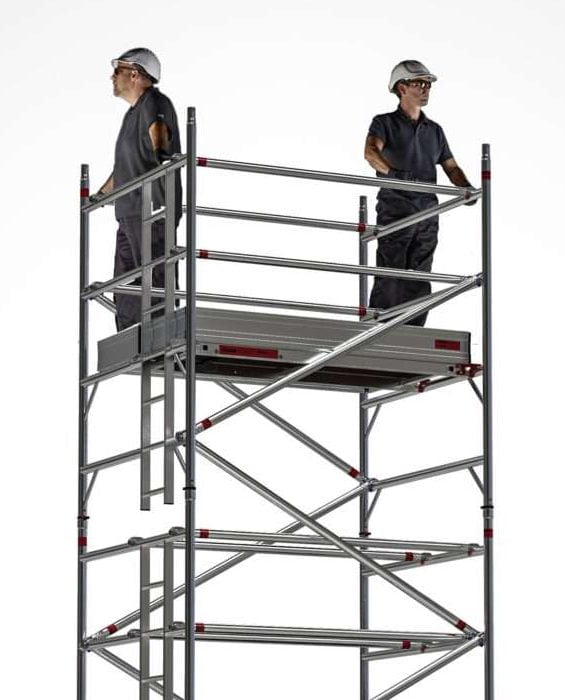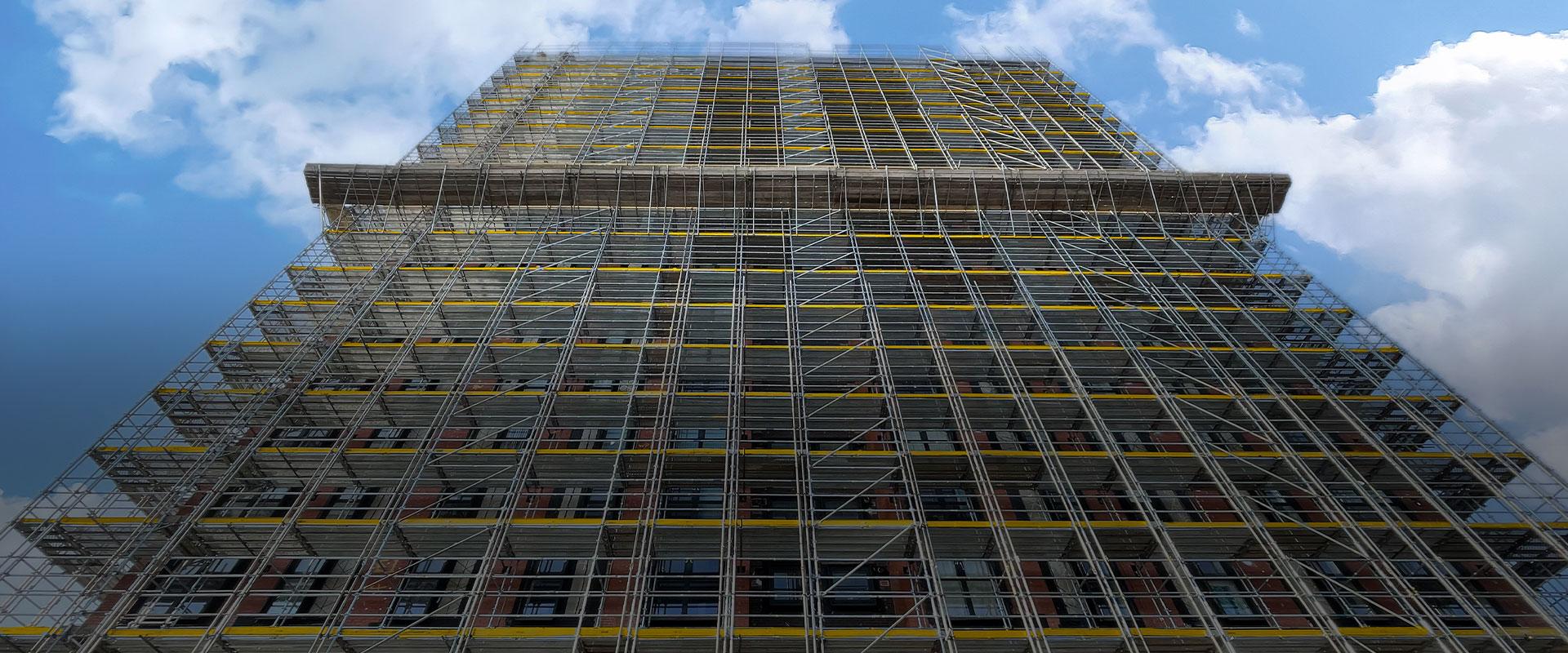Local Scaffolding Company Providing Reliable Services Throughout Surrey
Local Scaffolding Company Providing Reliable Services Throughout Surrey
Blog Article
Discovering the Numerous Sorts Of Scaffolding Made Use Of in Building And Construction Tasks
The building sector counts heavily on various kinds of scaffolding to satisfy details project demands, each offering distinctive advantages and applications. Standard structure scaffolding provides a durable structure for basic jobs, while put on hold scaffolding is necessary for job on skyscraper frameworks.

Typical Framework Scaffolding
Conventional structure scaffolding is just one of one of the most widely made use of methods in the construction sector because of its robustness and versatility. This system includes vertical and horizontal structures that are set up to produce a stable system for materials and workers. The main parts consist of upright blog posts, horizontal journals, and angled dental braces, which together supply a strong structure that can sustain significant lots.
Among the essential benefits of typical frame scaffolding is its flexibility to various construction projects, varying from residential structures to big industrial structures. The modular layout enables easy assembly and disassembly, making it reliable for both short-term and lasting projects. Furthermore, the system can be tailored in elevation and width, accommodating various structure layouts and website problems.
Safety is extremely important in scaffolding applications, and traditional frame systems are geared up with guardrails and toe boards to avoid falls and make sure employee security. Regular assessments and adherence to security policies are essential in maintaining the integrity of the scaffold (Scaffolding). Overall, traditional structure scaffolding stays an essential option in the building industry, supplying a reliable system for labor and boosting general task performance

Suspended Scaffolding
Put on hold scaffolding offers an unique solution for building tasks that need accessibility to elevated surface areas, particularly in circumstances where standard framework scaffolding might be impractical. This kind of scaffolding is typically put on hold from the roof or upper degrees of a framework, utilizing a system of platforms, ropes, and pulley-blocks to produce a working room that can be adjusted to different heights.
Among the primary benefits of put on hold scaffolding is its versatility. It can be quickly rearranged or decreased to accommodate modifications in construction needs, making it excellent for tasks such as home window installation, façade job, and upkeep on skyscrapers. Furthermore, the very little impact of suspended scaffolding enables for much better usage of ground room in city environments, where space is typically minimal.
Safety and security is a crucial consideration in the usage of suspended scaffolding. Generally, put on hold scaffolding provides a efficient and reliable solution for accessing hard-to-reach locations in numerous building and construction situations, enhancing both productivity and security on website.
System Scaffolding
System scaffolding, commonly considered a modern option in the scaffolding market, consists of pre-engineered parts that can be rapidly put together and adapted for various construction tasks. Scaffolding. This type of scaffolding is characterized by its modular layout, which enables versatility and performance on work websites, suiting architectural demands and different elevations
Normally made from high-strength steel or aluminum, system scaffolding uses enhanced resilience and stability. The elements include upright articles, horizontal journals, and diagonal braces, which interconnect firmly, making sure a durable structure. The design often integrates standard fittings, simplifying setting up and disassembly procedures, consequently decreasing labor time and prices.

Rolling Scaffolding
Rolling scaffolding is a versatile choice to standard fixed scaffolding, created for flexibility and simplicity of use on building and construction websites. This sort of scaffolding contains a platform sustained by frames with wheels, allowing workers to easily relocate it as he has a good point needed. The flexibility function considerably enhances performance, as it lessens downtime connected with putting together and dismantling fixed scaffolding.
Typically created from lightweight products such as aluminum or steel, rolling scaffolding supplies a durable yet mobile service for jobs requiring constant repositioning - Scaffolding. It is particularly helpful in tasks such as painting, drywall setup, and electric job, where access to various heights and areas is necessary
Security is vital in rolling scaffolding design, with attributes such as securing wheels to avoid unplanned motion when being used, and guardrails to protect workers from falls. Additionally, lots of designs discover this info here are flexible in elevation, fitting numerous project requirements.
Cantilever Scaffolding

The style of cantilever scaffolding commonly entails using arms or braces anchored to a structure or structure, enabling the system to extend outward securely. Safety is extremely important; therefore, these scaffolds need to be engineered to hold up against different lots and environmental problems. Regular inspection and upkeep are important to make certain architectural stability and employee safety.
Cantilever scaffolding is preferred for its flexibility and reliable use of room, making it a prominent selection in urban atmospheres where space restrictions are usual. It facilitates simpler access to high elevations, inevitably adding to the general performance of construction jobs. Similar to all scaffolding kinds, appropriate training and adherence to security criteria are vital for employees using cantilever scaffolding.
Verdict
To conclude, the diverse types of scaffolding made use of in building jobs each offer unique objectives tailored to certain website requirements. Standard structure scaffolding supplies stability, while suspended scaffolding offers flexibility for elevated tasks. System scaffolding helps with quick setting up, and rolling scaffolding enhances mobility for varying work atmospheres. Cantilever scaffolding effectively attends to challenges in metropolitan settings. Understanding these scaffolding types is vital for maximizing security and efficiency in building, eventually adding to the successful conclusion of jobs.
Traditional structure scaffolding supplies a sturdy structure for general tasks, while put on hold scaffolding is necessary for work on skyscraper structures.Rolling scaffolding is a functional option to traditional set scaffolding, made for wheelchair and ease of usage on building websites. As with all scaffolding kinds, appropriate training and adherence to safety criteria are crucial for workers using cantilever scaffolding.
Traditional framework scaffolding provides stability, while put on hold scaffolding provides flexibility for elevated jobs. System scaffolding facilitates fast assembly, and rolling scaffolding boosts mobility for differing work environments.
Report this page